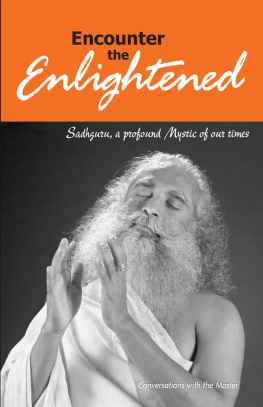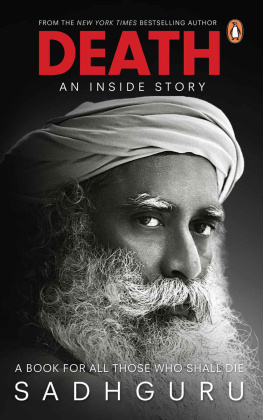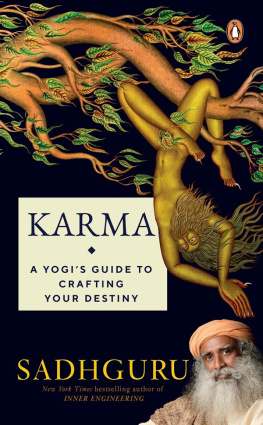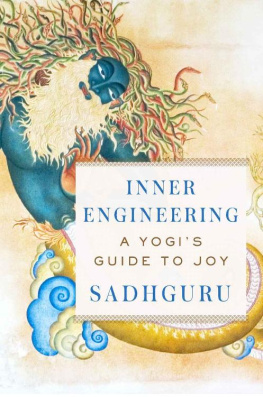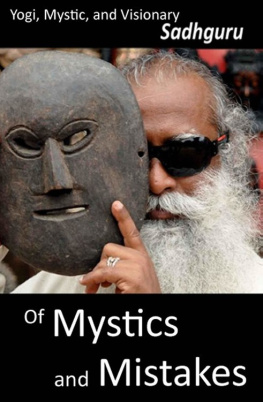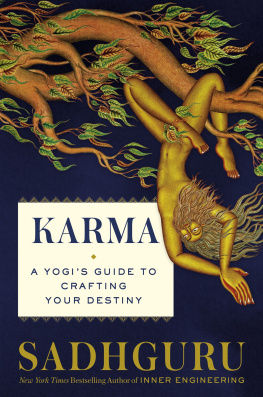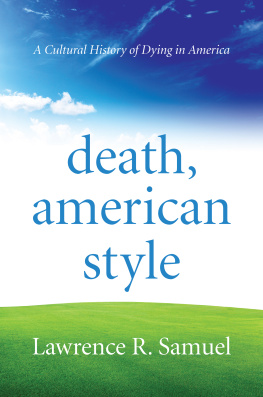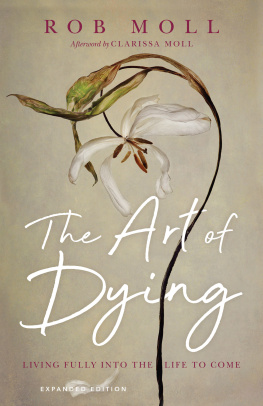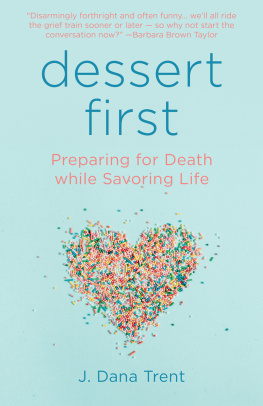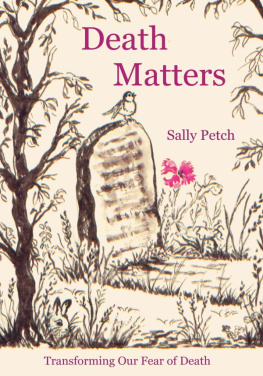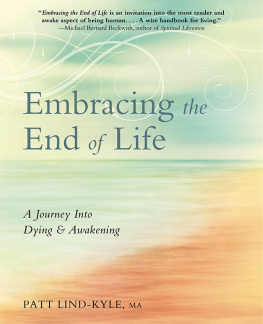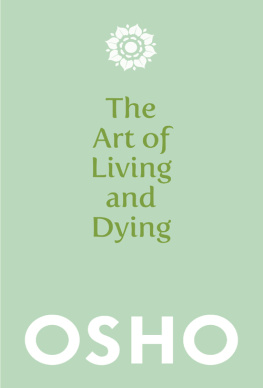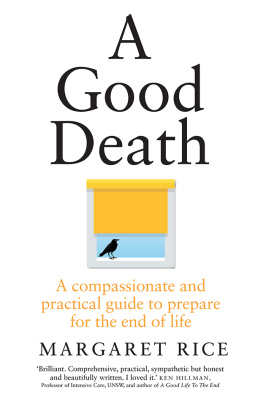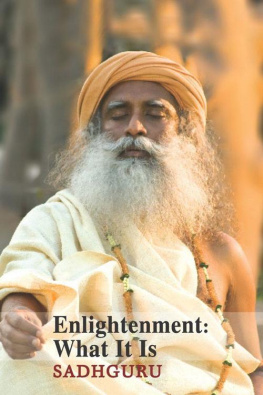Contents
PART I: Life and Death in One Breath
Death
PART II: The Gracefulness of Death
Become Me
PART III: Life after Death
The Dark One
PENGUIN ANANDA
DEATH
Yogi, mystic and visionary, Sadhguru is a spiritual master with a difference. Absolute clarity of perception places him in a unique space, not only in matters spiritual but in business, environmental and international affairs, and opens a new door on all that he touches.
Ranked amongst the fifty most influential people in India, Sadhguru is known as a speaker and opinion maker of international renown. He has been conferred the Padma Vibhushan, Indias highest annual civilian award, accorded for exceptional and distinguished service.
Sadhguru has initiated large-scale ecological initiatives, such as Rally for Rivers and Cauvery Calling, to revitalize Indias severely depleted rivers. These projects have found phenomenal support among Indias people and leadership. They are internationally accredited and recognized as game changers that can establish a blueprint for global economic development that is ecologically sustainable.
Sadhguru has been a primary speaker at the United Nations General Assembly and several other UN forums. He has also been regularly invited to speak at establishments such as the World Economic Forum, the World Bank, the House of Lords, the University of Oxford, MIT, Google and Microsoft, to name a few.
With a celebratory engagement with life on all levels, Sadhgurus areas of active involvement encompass fields as diverse as architecture and visual design, poetry and painting, aviation and driving, sports and music. He is the designer of several unique buildings and consecrated spaces at the Isha Yoga Center, which have received wide attention for their combination of intense sacred power and strikingly innovative aesthetics.
Three decades ago, Sadhguru established the Isha Foundation, a non-profit human-service organization, with human well-being as its core commitment. Isha is supported by over nine million volunteers in more than 300 centres worldwide.
app.sadhguru.org
isha.sadhguru.org
facebook.com/sadhguru
twitter.com/SadhguruJV
youtube.com/sadhguru
Death Blow
An Introduction
We all want to live well, and when it is time, die well too. This is the essence of most human aspirations. Within this, much, if not most, of human endeavour is dedicated to living well, and the outcome reflects it. Humans have achieved much in terms of living well. We have managed to acquire more comfort and convenience than any other generation in the past. However, when it comes to dying well, it cannot be said that we die in any way better than our ancestors. Many factors explain why humans were successful with living better but not dying betterthe most significant of them being the disparity between the way we treat life and death in our societies.
Everywhere in the world, life is mostly considered a success that is to be sung and celebrated, but death is considered a failure that is to be shunned and mourned. Oddly enough, in the construed dichotomy of life and death, it is life that is a four-letter word, not death. Yet, in the world, it is death that gets the bad press. Death is a word whose mere utterance can hush dinner conversations. Children are taught never to utter the word at home, unless the God of Death chooses to visit while the adults are on a quest to invent overly woke euphemisms that try to mask the bluntness of the event with vanity.
It is said that humans do not know much about death because they do not know much about life in the first place. Death is a brief occurrence at the end of a long life. But even after having lived a full lifetime, people are clueless about simple questions about lifelike, where did we come from and where are we going. So confusion about death is understandable. However, it must be acknowledged that in recent times, humankind has indeed travelled far from its simplistic understanding that Life is Gods gift and death is His wrath.
Traditionally, it was only religion that people looked up to for the unravelling of this mystery. Adjudication of matters related to death and dying was mostly in the hands of shamans and priests of various kinds. It was only in the past couple of hundred years, when a slew of medical discoveries began making a considerable impact upon health and mortality on a global scale, that people began turning to modern science for answers on death and dying as well. The success of modern science in dealing with matters of death and dying can be seen in the phenomenal improvement in just two of the key global health parameterslife expectancy and infant mortality. No better testimony to the success of modern medicine is needed than the burgeoning global population of 7.75 billion people on the planet. With this development, modern medicine has firmly dislodged everything else as the final adjudicators of all matters of life and death.
Modern science, characterized by objectivity and universality, has now enabled people to look at death in ways that were not possible before. However, the blazing trail left behind by modern science is not without its blind spots, dangers and destruction. One major outcome of death being handled by modern science is what has come to be called the medicalization of death. Death, especially in the more advanced countries, is no longer looked at as a natural phenomenon but as a medical condition, with even ordinary life events and conditions being treated as risks and diseases. Death being preceded by excessive and often aggressive medical interventions has become the new norm.
Moreover, humans have never been comfortable with their mortal nature. So the success of medical science has only breathed a fresh lease of life to the historic quest for immortality. Riding on the shoulders of modern science, people have now begun to speculate if deathlessness is not in fact the norm and death an aberration. It has emboldened people to wonder if death is not just one more disease that needs to be conqueredsomething that our super sleuths in white coats will surely do within our lifetime. Our growing capability to interfere with the fundamental life process has undoubtedly increased our propensity to overdo it.
One reason why scientists appear akin to the six blind men studying an elephantgetting parts right while missing the wholeis their keyhole vision of life. Deathjust as lifecan be understood as having three components. There is a biological part, a psychological part and a metaphysical part that causes the biology and the psychology to happen. In recent times, our understanding of the biology of death has greatly increased. Today, we have a much better understanding of the point where, biologically, life ends and death begins. In terms of psychology too much progress has been made. What makes a person? Is it Nature or nurture? What is the role of each? These aspects too are much better understood. But the more profound questions of why death or life happens, and how, are still largely not understood.


